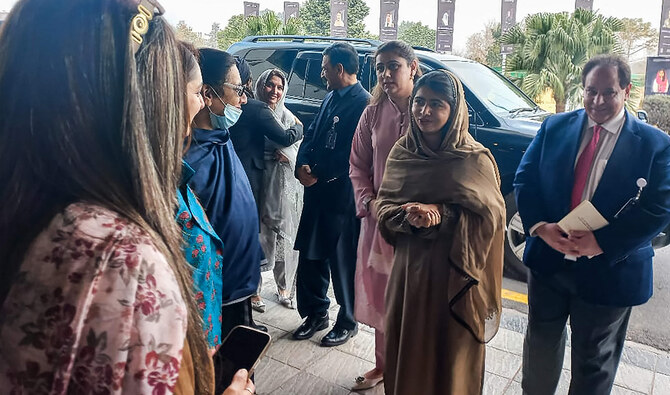KARACHI: Pakistan’s largest conglomerate, Engro Corp, is looking to expand into new markets, including the Middle East, Central Asia and Africa, the chemicals-to-energy company’s largest investor said on Tuesday.
Speaking to Reuters in a rare interview, Samad Dawood, vice chairman of Dawood Hercules Corp, which owns 40 percent of Engro Corp, said the company was also considering global liquefied natural gas (LNG) opportunities as well as hydrogen energy.
The expansion plans include looking at telecoms infrastructure in the Middle East, North Africa, and Central Asia, while it is looking at Africa to expand its fertilizer businesses, he said.
Engro Corp. has a market capitalization of 193 billion rupees ($694 million) on the Pakistan Stock Exchange and assets of 802 billion rupees ($2.9 billion), according to public data.
The group has businesses across multiple sectors in Pakistan, including energy, fertilizer, telecommunications and consumer goods.
It owns 56 percent of Pakistan’s first LNG terminal, Engro Elengy Terminal Pakistan, which was set up in the southern city of Karachi in 2015. Dutch energy logistics giant Royal Vopak owns the remaining 44 percent.
The terminal fulfils 15 percent of Pakistan’s natural gas demand.
Dawood said Engro will continue to invest in the energy sector despite having sold its coal-based assets, and was exploring new avenues for sustainable energy production.
He said the company was talking to technology providers in the hydrogen energy sector to figure out how to use ammonia as an energy transition solution.
Dawood added that Pakistan was far from being energy-secure and there were plenty of opportunities to invest further in the power sector.
Pakistan has moved toward reliance on LNG after its own domestic gas supplies dwindled fast as consumption in the industrial and residential sectors increased.
’DREAMER’
Dawood said the global push was inspired by his late elder brother Shahzada, who perished last year in the ill-fated Titan’s voyage to explore the Titanic wreckage — an accident that made global headlines when the deep-sea submersible imploded and killed all five people on board.
“He (Shahzada) was much more of a dreamer and pushing us to become more international and building that curiosity and engaging with the outside world,” Dawood said.
The Dawood family also faced a protracted legal ordeal in Pakistan where the company was accused of getting illegal favors from the government.
The case, which lasted years, finally ended last week with the country’s accountability watchdog dropping the case entirely. Dawood says the matter hurt the family deeply and even impacted their businesses and potential investors.
The company’s plans to push ahead are taking shape, Dawood said. On Monday, the boards of Engro and Dawood Hercules approved in principle a restructuring plan to allow them more capital flexibility.
Dawood said the restructuring will allow for participation in “opportunities that the entire economy provides,” adding that the boards wanted the flow of capital to be completely seamless between the two organizations.
He said Engro would be able to expand its investment mandate to include exploring opportunities created by multinational corporations divesting from Pakistan’s troubled markets.























